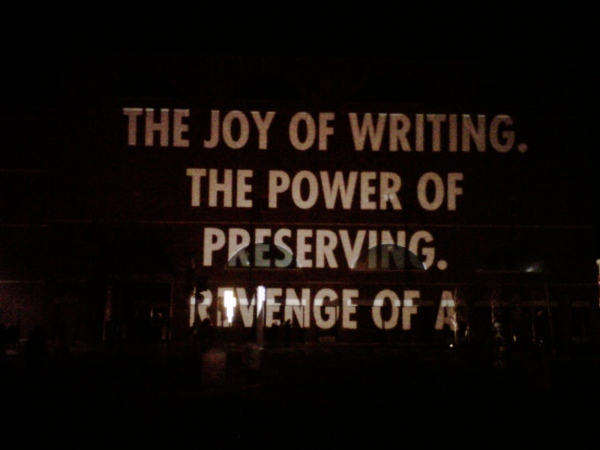There are only 2 kinds of actions to take in life: a reactive one, or a proactive one, and if you want to know which corner you’re in, just climb down your basement stairs and see how much is floating. Drenched as we’ve been lately on the east coast, all ‘state of emergency’ and ‘the sky is falling’ factions have conspired to either congratulate you on your preparedness or illuminate your lack of it.
I ponder my placement on this why-axis as I pull on my rubber boots to survey the damage from yet another weather frenzy. Glad as I am in this moment to be a nomad instead of a nester, I’m even happier that the house I’m temporarily calling home has been tended to: toolboxes on shelves, washer + dryer raised on pallets, no flotsam and jetsam to reel in. Phew. No soup for FEMA today.
Flashing back to 1999, I recall sitting in front of the loan officer at the bank I’d been affiliated with my whole life. I was applying for a mortgage for my first house, and it was proving tricky. Apparently my occupation at the time – waiter – wasn’t what he liked to call traditional. Gratuity-based income didn’t seem to please his rather narrow bankerly mentality, and despite years of consecutive, steady income, tips tripped up his ability to ascertain my cash flow.
“You just can’t count on them,” he said.
“I’ve been counting on them for years,” I replied. “It’s no different from your salary. Look at my taxes – they’re the same year after year. They’re as real as this desk.”
No matter the black and white numbers on the official forms before him, he just couldn’t see it. He was using the wrong mechanism. Security, financial or otherwise, is not something you measure with a calculator or even calipers. Indeed, all we do to protect ourselves out in the big, bad world merely proves it to be an illusion. Don’t be fooled by the necktie. It’s just an expensive, strangling accessory anyway.
I got the mortgage eventually (of course, at a higher percentage rate to compensate for my “unusual” situation), painted the library, unpacked cartons of books, and settled into my new home. It was in this room one morning, in fact, listening to the radio I heard the unfolding news that rocked our cushioned world. Confusion, horror, overwhelming sadness…we all felt it – our sense of safety crashing all around us. From mighty steel…to dust.
In the aftermath, I searched for wisdom and meaning. My philosophizing called into question words like security and patriotism, like my nephew as he learns to speak his world, asking incessantly, what’s this, Aunt Kellie? What’s that called? Why?
In the ten years since, what I’ve come to realize is that security is not collateral to be measured concretely like a regular paycheck or the automobile industry or our ranking in the world or all the crap we stuff into our buildings. It’s nothing we can lay our hands on and say: this technology, this law, this bomb will protect me.
What gives us staying power, the ability to keep calm and carry on is how we proactively position ourselves – the resources we build well, within: Our constitution in the face of great force, whether flood or famine. Our emotional athleticism – being limber enough to feel beyond our own periphery. Our intellectual agility – informing ourselves with multiple perspectives to counteract propaganda (especially from authorities we tend to trust). Our ability to pause – for when the shit hits the fan, we need to move intentionally. And, overall, our lovingkindness – because an open heart always trumps envelopes and embraces fear.
The best place to find shelter…is inside. It’s the strongest, most resilient structure you can create. Just make sure to keep the base(ment) clean, because if you don’t do it now, it’ll be that much harder when you’re forced to.
*********************
“If I could only turn back the clock to when God and her were born.
“Come in,” she said
“I’ll give you shelter from the storm”.
~ Bob Dylan
*****************







